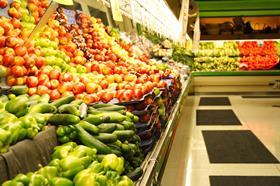
Failure to secure a free trade deal would lead to higher prices and less choice for consumers, a parliamentary committee has warned.
The Business, Energy and Industrial Strategy Committee said that “no deal” on free trade with the EU would be “disastrous” for the UK’s food and drink industry, which employs 400,000 people and is Britain’s largest manufacturing sector.
Chair of the committee Rachel Reeves said: “The success of the industry has been highly dependent on participating in the Single Market and Customs Union.
“To ensure the continued success of our food and drinks industry, the government must provide clarity and certainty on our future relationship with the EU and seek continued regulatory, standards, and trading alignment with the EU in the processed food and drink sector.”
The report warned that UK consumers could face higher prices and less choice of products if the UK loses free trade access to EU markets when the Brexit transition period ends in December 2020.
“Should the UK continue to export the majority of its products to the EU, a no deal scenario with WTO tariffs would have a seismic impact on the sector’s performance and the competitiveness of exports, especially for some of the UK’s top ten processed products, such as chocolate, cheese, beef, pork and soft drinks,” the committee said.
“A no deal scenario would be unviable and unacceptable to the sector as, at least in the short term, the EU is the UK’s main trading partner. It would also have serious repercussions for importers of UK products in the EU and the rest of the world.”
The committee urged the government to end uncertainty over future customs arrangements with the EU by “negotiating a new partnership with the EU as soon as possible”.
It added that border arrangements should be changed as little as possible to avoid delays and extra cost, as well as beefing up customs capacity at border points to help businesses transition to a new customs model.
The Irish border was mentioned as a priority issue, with the committee pushing for greater clarity on customs arrangements between Northern Ireland and the Republic.
Ian Wright, chief executive of the Food and Drink Federation,said the report was “an extremely valuable contribution to the debate about the UK’s future trading relationship with the EU”.
He added: “Any increased friction as a result of physical checks or paperwork at borders will prove costly for the entire supply chain and cause short-term disruption for businesses, consumers and shoppers.
“We echo the committee’s call to government for increased customs capacity and support for businesses of all sizes to navigate the changes ahead. The proposed transition length is briefer than we believe would be optimum and government must review how ‘readiness’ is progressing.”



